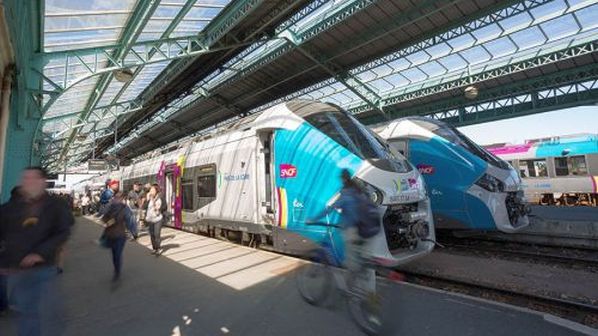Currently passengers travelling between the two cities - which are separated by 556km by road - require a change in Paris. This journey takes 5h 26min on the fastest TGV connection, with a 1h 19min connection in Paris.
The company is planning to offer three trains per day via Libourne, Périgueux, Limoges, Guéret, Montluçon, Saint-Germain-des-Fossés and Roanne and is proposing a 6h 47 min journey time.
While considerably longer than the 5h 30min car journey and the equivalent trip by TGV, Railcoop hopes that time will be offset by onboard services and greater comfort. The trains are set to feature a children’s play area, catering and storage for luggage, skis and surfboards.
The lowest priced ticket for the journey will be set at €38 and pre-Covid-19 projections were for 690,000 passengers per year to use the service. A study by Systra confirmed the strong potential for the route and Railcoop hopes to attract motorists and benefit from the curtailing of domestic air travel in France.
Founded in November 2019 as France’s first cooperative society of collective interest for railways (SCIC), Railcoop says it has confirmed its intentions to France’s Regulatory Transport Authority (ART) on June 9, which will investigate whether the planned service conflicts with an existing public service. A decision of whether to grant the operator the necessary train paths will be confirmed by September 2021.
The company is also targeting the introduction of freight trains from the second half of 2021 and hosted a meeting of around 30 companies in February interested in pursuing alternative logistics.
A sticking point for the operator might be the €1.5m share capital, the minimum threshold for obtaining a railway operating license. The cooperative must recruit 3000 members and to date, according to Capital, has raised 10% of the sum from 360 members.
France is set to open its rail market to competition for the first time from December 2021. The Ministry of Transport published a tender in January for the operation of Intercities services between Nantes and Bordeaux and Nantes and Lyon on the Balance of Territory (TET) inter-city network, currently operated by SNCF Mobility from the beginning of 2022, a move that was welcomed by Transdev.
However, another potential operator to compete with SNCF, FlixMobility, confirmed its intention to postpone plans to enter the French market in April due to high access charges in the country.

